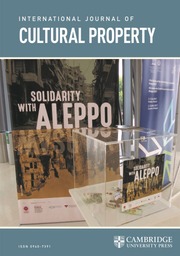Crossref Citations
This article has been cited by the following publications. This list is generated based on data provided by Crossref.
Rohlfs, Rori V.
Fullerton, Stephanie Malia
Weir, Bruce S.
and
Gibson, Greg
2012.
Familial Identification: Population Structure and Relationship Distinguishability.
PLoS Genetics,
Vol. 8,
Issue. 2,
p.
e1002469.
Rohlfs, Rori V.
Murphy, Erin
Song, Yun S.
Slatkin, Montgomery
and
Mailund, Thomas
2013.
The Influence of Relatives on the Efficiency and Error Rate of Familial Searching.
PLoS ONE,
Vol. 8,
Issue. 8,
p.
e70495.


